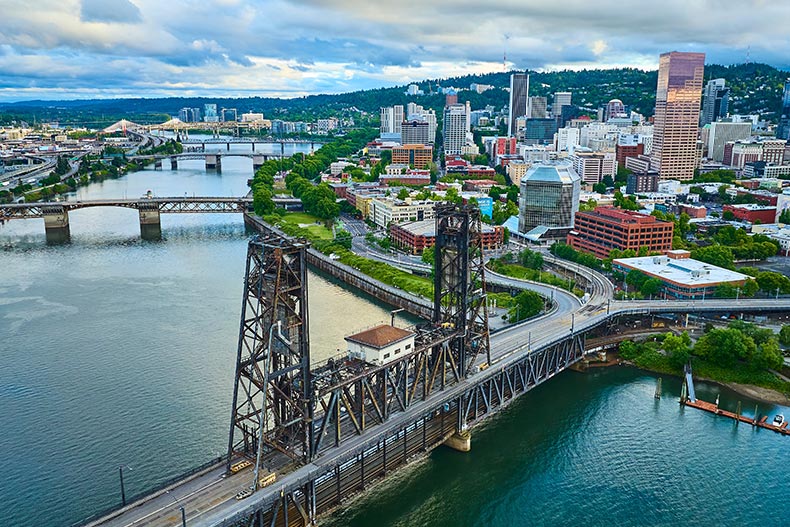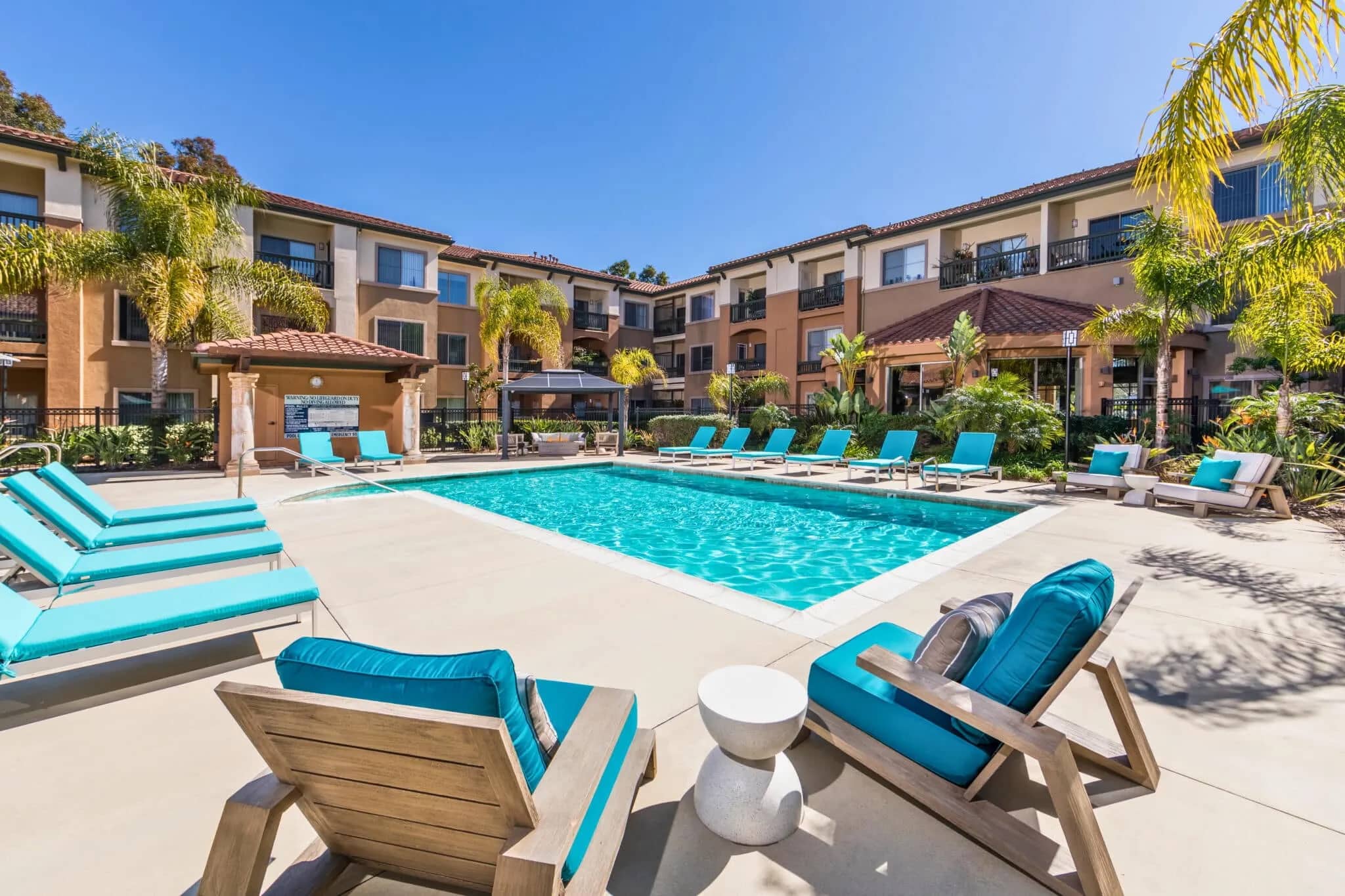Located on the scenic Columbia River along the Washington border, the city of Portland, Oregon is a unique and desirable retirement destination in the Pacific Northwest. The Rose City may not experience the year-round sunny weather of Florida or Arizona, but more and more retirees flock there each year.
A distinct artistic atmosphere, unparalleled natural amenities, and world-class attractions are enough to convince many active adults to make the move. For retirees asking themselves “Should I move to Portland?”, we’ve created a guide exploring the aspects of the city most relevant to active adults and their preferences.
Retiring in Portland: Pros and Cons
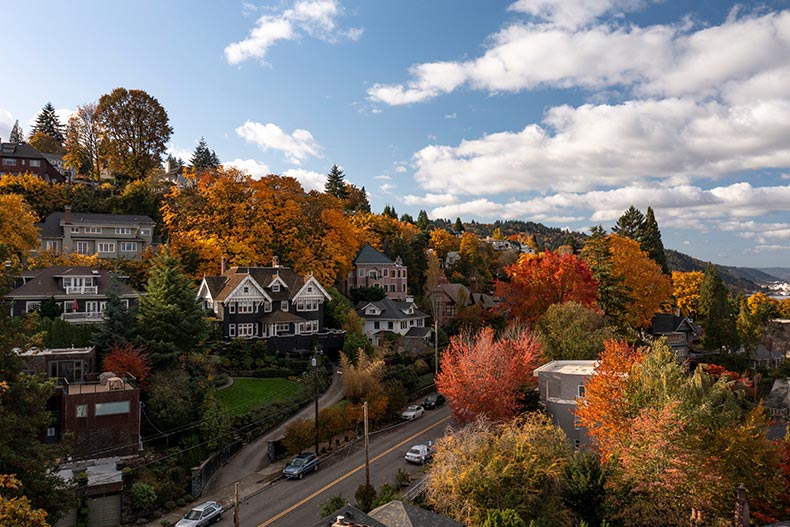
Life in any city, including Portland, comes with pros and cons. However, residents of the area tend to agree on a few of the features that characterize life in Portland.
Pros
- World-class food, beer, and coffee – Portland has been named the top beer city in America by Thrillist and the number one coffee city by WalletHub. The city also boasts as the birthplace of James Beard, whose legacy established the nation’s most prestigious culinary honor. The chefs, brewers, and baristas in Portland dedicate themselves to their craft with a rare passion that focuses on precision and innovation.
- Incredible natural amenities – From the Columbia River that runs through Downtown Portland to the Oregon Coast to nearby Mount Hood, Portlanders have abundant opportunities to explore the natural beauty of the Pacific Northwest.
- Environmental friendliness – Portland has consistently been ranked by WalletHub as one of the greenest cities in America. Residents and corporations make a strong effort toward sustainability and a clean environment. The city is highly walkable and bikeable, which means less time behind the wheel and more time exploring.
- No sales tax – The state of Oregon does not tax the sale of goods. This means residents do not pay extra when they buy something, whether it be a gallon of milk at the supermarket or a brand-new smartphone.
Cons
- Traffic – Unfortunately, residents must put up with a fair amount of traffic when traveling in and out of the city during busy times. Active adults should expect to sometimes experience delays and plan their trips accordingly.
- Gloomy winter weather – In the colder months of the year, Portland experiences constantly cloudy, drizzly conditions. Fortunately, the weather overall could be considered pretty mild and the summers make up for the gloom with sunshine.
- Income tax on retirement income – While Social Security benefits are exempt, other retirement income such as pensions and 401(k)s are subject to the state income tax.
- Higher cost of living – According to Best Places, the cost of living in Portland trends over 25% higher than the national average. Expenses like groceries, housing, and transportation tend to cost more, but other expenses like health care and utilities are far below national averages.
Portland Climate
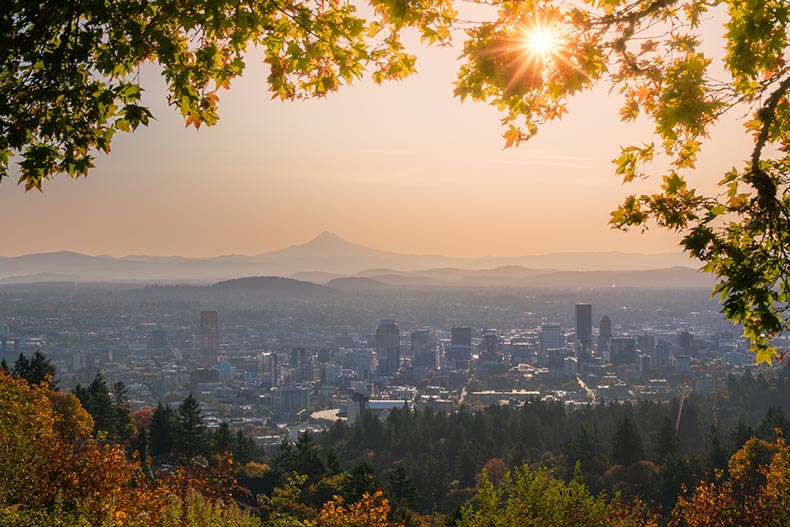
The Pacific Northwest has a reputation for gloomy, cold, and rainy weather, but retirees investigating Portland shouldn’t expect these conditions every day of the year. Portland experiences four distinct seasons and the weather can be considered relatively mild compared to other cities on the same latitude.
Average Temperatures
The cold months from November to February see daily temperature averages below 52 degrees, while the hot months from June to September have highs most often above 76 degrees. Portland rarely sees extreme temperatures, with the average low in December at 36 degrees and the average high in August at 83 degrees. Active adults who prefer a retirement destination with temperate weather as opposed to year-round hot weather may enjoy the mild temperatures Portland experiences.
Rain and Snow
In general, the warmer months bring clearer skies and significantly less precipitation than the colder months. This means that months like November have a greater chance of being cloudy with a drizzle opposed to August which will likely be sunny. One might also assume that since Portland sits in the north, then it must see a lot of snow. However, the average snowfall in the snowiest month, January, is only about 2.4 inches on average.
Outdoor Recreation
The weather provides ample opportunities around the year to enjoy time outside. Residents can go for a hike at one of the stunning local parks, fish downtown for salmon, go bird watching, or simply take a break out in nature with a picnic or a good book.
Portland Taxes
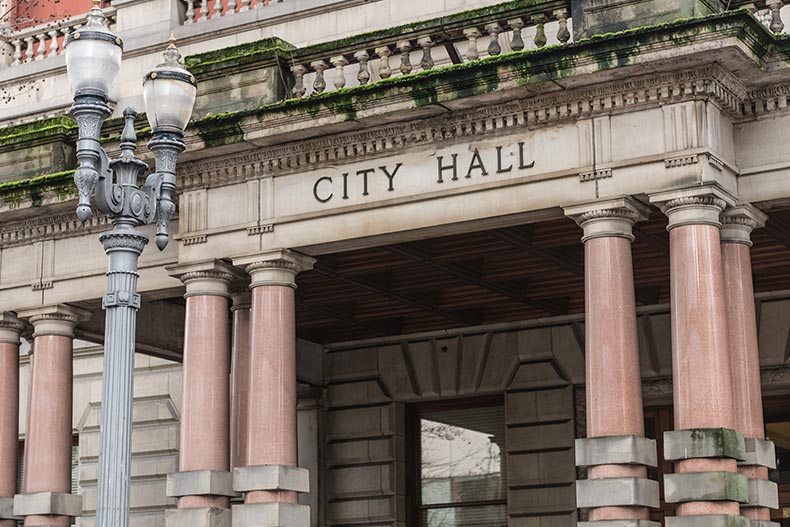
Like any retirement destination, there are pros and cons to Portland’s tax environment. One benefit of moving to Portland, Oregon is that neither the state nor local authorities levy a sales tax, which saves residents money when buying goods that would otherwise be taxed in other states. However, other taxes may be slightly higher than other places which may offset the savings gained from the lack of sales tax.
Property Taxes
Property taxes work a little differently in Oregon when compared to other states. Generally, a home is taxed based on its market value. In Oregon, however, the tax applies either to the market value or the maximum assessed value, whichever is lower. The state implemented this system to assist homeowners since the maximum assessed value of a home has a limit of 3% annual growth. That way, if a home’s market value increases drastically and quickly, property taxes will still remain relatively low.
The property tax rate in Multnomah County is 1.11%. For example, a home that costs around $400,000 comes with a property tax of around $4,440.
Retirement Income Taxes
The income tax of Oregon offers both good news and bad news for retirees. The good news is that Social Security benefits are completely exempt from taxation. The bad news is that the income tax applies to other types of retirement income, such as IRAs, 401(k)s, and pensions.
Oregon utilizes a graduated income tax system that starts at 4.75% for income below $3,750 and grows in different brackets until it reaches 9.90% for incomes $125,000 and above. Oregon does not tax inheritance, but an estate tax applies to estates worth $1 million and above.
Taxes Exemptions
Fortunately, 62+ active adults who maintain an income at or below $58,000 may qualify for the Oregon Property Tax Deferral for Disabled and Senior Citizens. If certain requirements are met for this deferral, the state of Oregon covers all property taxes for homeowners.
Also, Active adults may qualify for a pension income credit of up to 9% should they meet certain requirements. 62+ active adults who maintain a household income of less than $22,500 with less than $7,500 from Social Security benefits may meet the requirements.
Portland Health Care
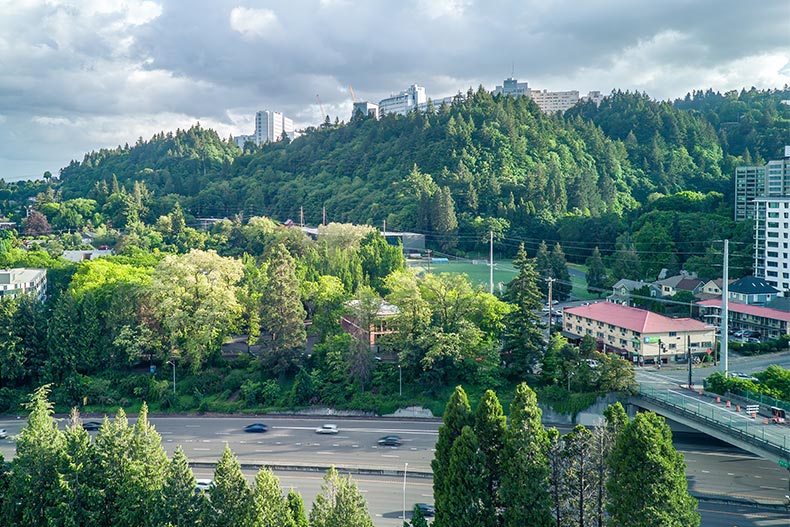
Active adults can find the health care they need in Portland, whether they seek routine check-ups or specialty treatments. With several convenient health care systems in the local area, residents can choose the medical center that best fits their needs and preferences.
OHSU Hospital from the Oregon Health & Science University provides state-of-the-art care to its patients and ranks nationally in several fields, according to U.S. News & World Report. Some of the highest-performing areas of care and research include cancer treatment, cardiology, ENT, and geriatrics.
Another accredited institution in Portland, Providence St. Vincent Medical Center, offers health care on the western side of the city. In addition to its highly-ranked services, the hospital is home to the Providence Heart Institute and the Providence Brain and Spine Institute.
On the southeast side of Portland, residents can find Kaiser Permanente Sunnyside Medical Center. This hospital covers the complete spectrum of care, especially in areas unique to active adults. Kaiser Permanente was named one of America’s 50 Best Hospitals for Cardiac Surgery by Healthgrades and is certified as a Comprehensive Stroke Center.
Where to Live in Portland
Retirees deciding whether or not to retire to Portland, Oregon should consider moving into a 55+ community. There are many benefits to choosing an age-restricted community as a retirement destination, including low-maintenance lifestyles, luxury amenities, thoughtfully designed homes, and full social calendars of events and activities where active adults can meet like-minded people.
Claremont – Portland, OR
High $400ks – Low $1Ms
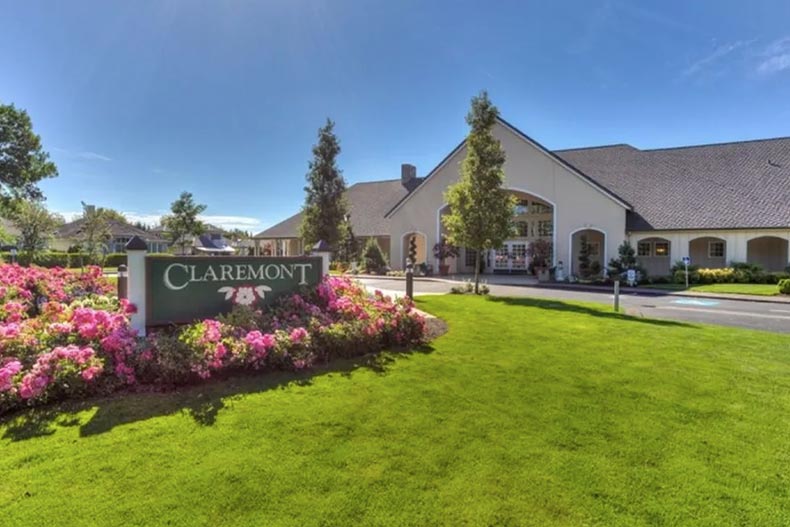
Choosing a 55+ community in Portland puts residents within easy reach of all the dining, entertainment, and conveniences that the city has to offer. Claremont, a golf course community west of downtown, attracts retirees from across the state and the country. A 12,000-square-foot clubhouse, 556 single-family and attached homes, and a convenient location reflect just some of the appealing aspects of this well-established community.
Summerplace – Portland, OR
High $300ks – High $400ks
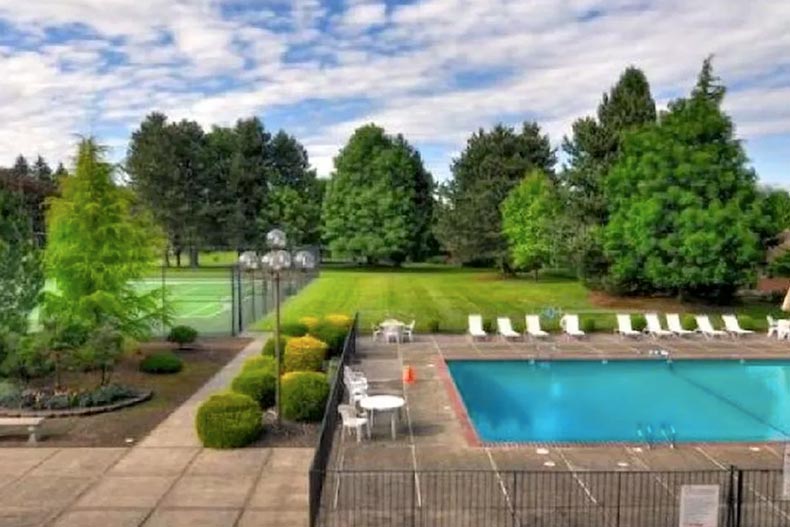
Summerplace in northeast Portland puts residents within easy reach of both the downtown area and the extensive outdoor recreation areas along the Columbia River. The community consists of 807 single-family and condominium homes. Also, residents enjoy access to amenities like an outdoor pool, ballroom, and tennis courts.
King City – Portland, OR
High $100ks – High $500ks
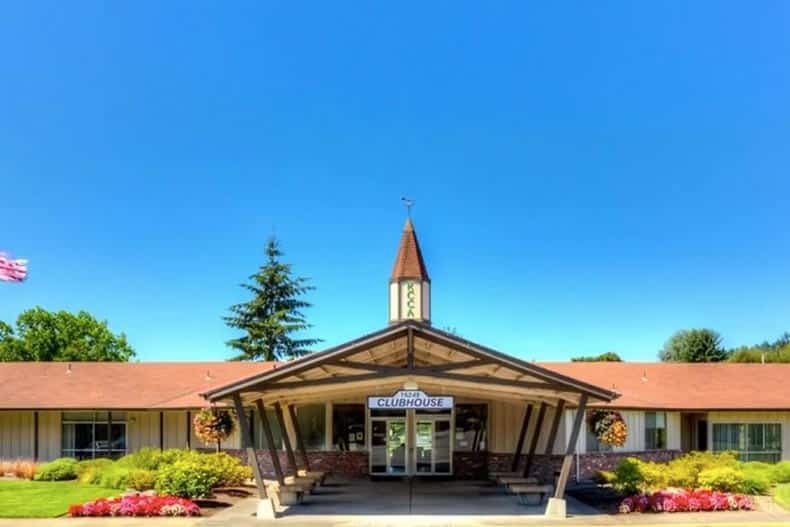
King City, one of the largest 55+ communities in Portland, consists of 1,287 single-family, attached, and condominium homes. Residents can participate in more than 40 clubs and interest groups and enjoy access to an indoor pool, lawn bowling, and an arts and crafts studio.
Fairway Village – Vancouver, WA
Mid $500ks – Low $600ks
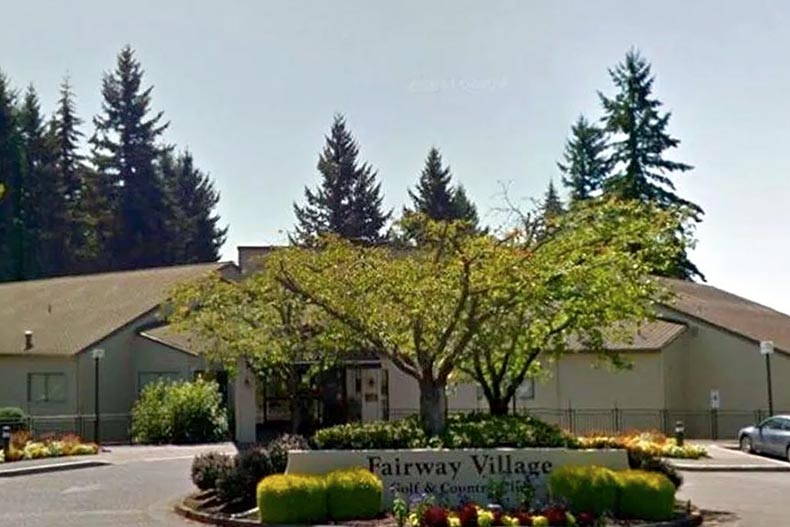
Several notable 55+ communities can be found in the area surrounding Portland as well. Just north of the Columbia River in Vancouver, Washington, active adults can find Fairway Village and its 824 single-family and condominium homes. As the name suggests, the community surrounds a nine-hole golf course and includes additional amenities such as a library, a billiards room, and a sauna.
Condolea – Lake Oswego, OR
Low $400ks – Low $700ks
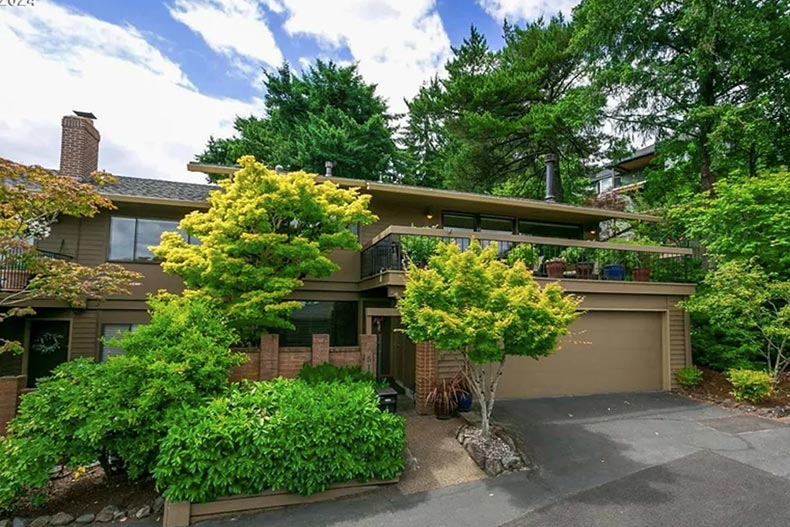
About 15 minutes south of Portland in Lake Oswego, homebuyers can find an exclusive community with just 56 attached homes called Condolea. Residents of Condolea enjoy a low-maintenance lifestyle thanks to a homeowners’ association (HOA) that takes care of all landscaping, exterior home maintenance, and common area maintenance. With more free time, homeowners can spend time on the water at the community’s pool or down the street at scenic Oswego Lake.
Highlands – Tigard, OR
Low $300ks – High $500ks
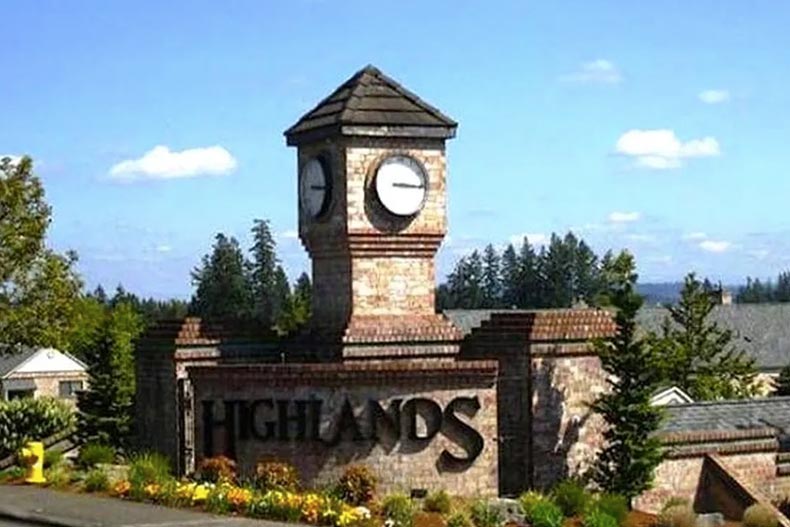
Active adults who want to settle within 30 minutes of the city should consider Highlands in Tigard, Oregon. Residents of the 319 single-family and condominium homes enjoy amenities such as a clubhouse, ballroom, and library as well as a scenic location that puts them within reach of greenspaces like Tualatin River National Wildlife Refuge.
Summerfield – Tigard, OR
High $100ks – High $500ks
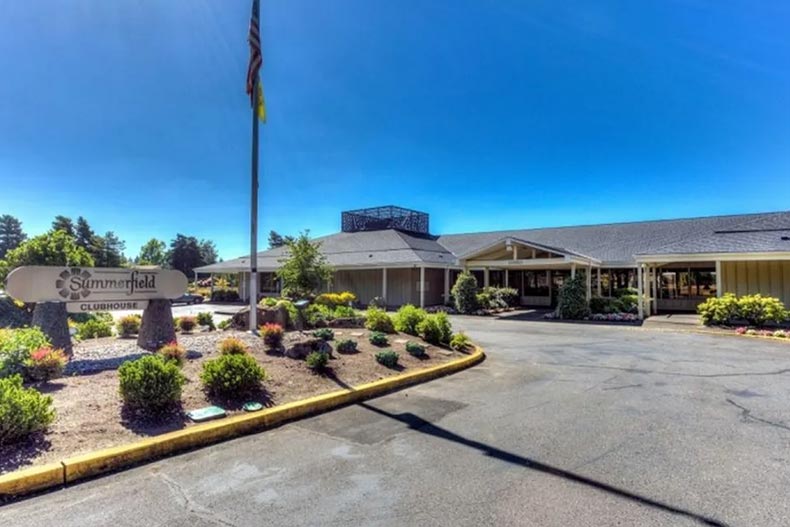
Also located in Tigard about 20 minutes away from Portland is Summerfield, a 55+ community surrounding a well-maintained 9-hole golf course. This expansive community contains 1,231 single-family, attached, and condominium homes, thoughtful amenities, and an expansive list of active clubs and interest groups.
Let 55places Help You Find the Perfect Home in Portland
Portland and its 55+ communities offer many benefits to the active adults who choose it as their retirement destination. From pleasant weather to mild taxes to unique attractions, the city has become a verified retirement hotspot in the Pacific Northwest.
Still wondering “Should I move to Portland?” Want to know more about 55+ communities in general? Contact us today and we’ll connect you with a real estate expert who will guide you on your journey to find your ideal home.

